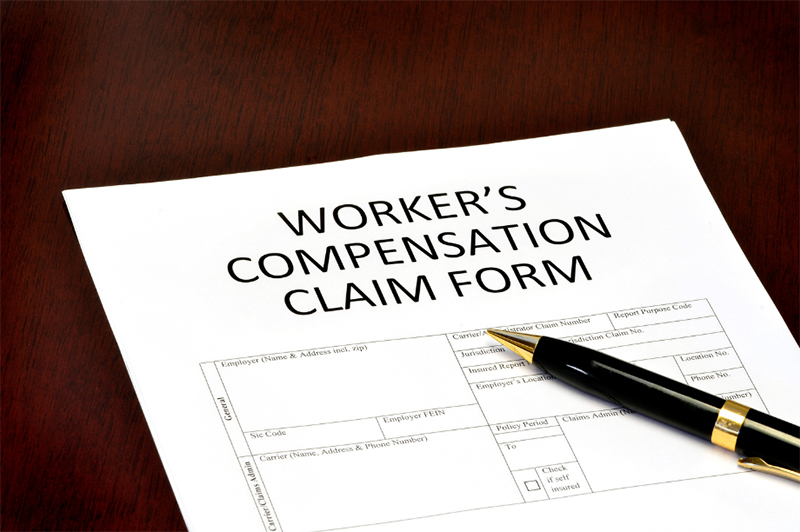Do I Have a Workers Comp Case?

If you recently experienced a workplace injury or illness, you might wonder whether you have a workers’ compensation case. Working with your Indianapolis workers compensation lawyer can determine if you have a workers’ compensation case and empower you to make the right decisions in seeking the benefits and protection you deserve.
Employment Status and Employer Coverage
To qualify for workers’ compensation, you must work as an employee of a company with workers’ compensation insurance and meet several other eligibility requirements.
Eligibility
To qualify for workers’ compensation benefits, you must fall under the definition of an employee. Generally, employees work under the direction of an employer. This includes full-time employees, part-time employees, and temporary workers.
Workers’ compensation insurance does not usually cover independent contractors, freelancers, and volunteers. However, the distinction between an employee and an independent contractor can sometimes be unclear. In such cases, seek the guidance of an experienced workers’ compensation attorney.
Employer Requirements
Most employers must have workers’ compensation insurance to cover their employees’ work-related injuries and illnesses. Requirements vary by state, industry, and the number of employees. If your employer fails to obtain mandated workers’ compensation coverage, they may face severe penalties.
Individual states govern their workers’ compensation laws, and your lawyer can familiarize you with your state’s rules and regulations. These may include the minimum number of employees an employer must have to necessitate carrying workers’ compensation insurance, exempt industries, and the types of benefits available. Your attorney can also navigate the complexities of your state’s requirements to ensure the protection of your rights.
Work-Related Injuries and Illnesses
A work-related injury or illness arises out of and in the course of your employment. This means that it must have occurred while you were performing a job-related task. You must draw a direct connection between your work and the injury or illness, and your lawyer can gather the evidence to demonstrate this.
Injuries or illnesses that may qualify for workers’ compensation benefits include, but are not limited to:
- Acute physical injuries, such as broken bones, sprains, strains, and dislocations.
- Repetitive stress injuries, such as carpal tunnel syndrome or tendinitis.
- Occupational diseases, such as asbestosis or silicosis.
- Mental or emotional injuries after a work-related injury, such as stress-related conditions or post-traumatic stress disorder.
Not all injuries or illnesses that you sustain during your time at work are work-related. For example, if your injury occurred during your lunch break, while engaging in a personal activity, or while commuting to or from work, you may not receive workers’ compensation benefits.
Reporting and Filing Deadlines
Promptly report and file your workers’ compensation claim. Each state has specific requirements for reporting workplace injuries or illnesses to your employer, which federal guidelines govern. The time frame may range from a few days to several weeks. Failure to report your situation within the mandated period can result in the denial of your claim.
There are also state-specific deadlines for filing your workers’ compensation claim. These can range from a few months to a couple of years from the date of injury. Missing this deadline may result in forfeiting your rights to benefits. Your attorney can adhere to these deadlines.
Failing to meet reporting and filing deadlines could have severe consequences, such as the denial of your claim or the loss of certain benefits. Missing a deadline may also prevent you from receiving workers’ compensation benefits. Consult an attorney for assistance with this process.
Medical Evidence and Documentation
Medical evidence is critical in supporting your workers’ compensation claim. This evidence may include medical records, doctors’ reports, diagnostic tests, and other documentation demonstrating the nature and extent of your injury or illness and its connection to your work.
Your records establish the severity of your injury, the necessity of medical treatment, and your progress. Ensure that all medical providers you consult maintain detailed records throughout your treatment.
Doctors’ reports and diagnostic tests can also estimate future medical costs and the need for ongoing treatment, which can affect the benefits you receive.
Exclusions and Disputed Claims
Certain circumstances may exclude you from receiving workers’ compensation benefits, such as:
- Injuries you sustain while intoxicated or under the influence of drugs.
- Injuries resulting from intentional self-harm.
- Injuries you suffer while engaging in horseplay or fighting in the workplace.
- Injuries you sustain while committing a crime or participating in activities that violate company policy.
Your employer or their insurance company may contest some injuries or situations, which could lead to the denial of your claim.
Examples of these situations may include:
- Pre-existing conditions that worsen due to engaging in workplace activities.
- Injuries that occur outside of working hours or off the employer’s premises.
- Situations where it is unclear whether an injury is work-related or due to personal factors.
If your employer or their insurance company disputes your claim, an experienced attorney can protect your rights and gather evidence to support your claim.
3 Steps to Take Following a Disputed Claim

If your employer or the insurance company disputes your claim, consider taking these steps:
- Consult a workers’ compensation attorney to discuss your case and explore your legal options.
- Gather additional medical evidence and documentation to support your claim.
- Appeal the denial through your state’s workers’ compensation appeal process with the assistance of your attorney.
While the above information provides an idea of whether you have a workers’ compensation case, individual circumstances can vary. Seek professional legal advice and ensure that a workers’ compensation attorney assesses your situation thoroughly and can protect your rights.

